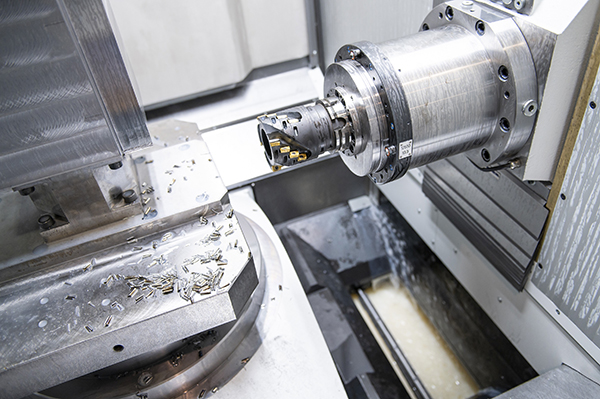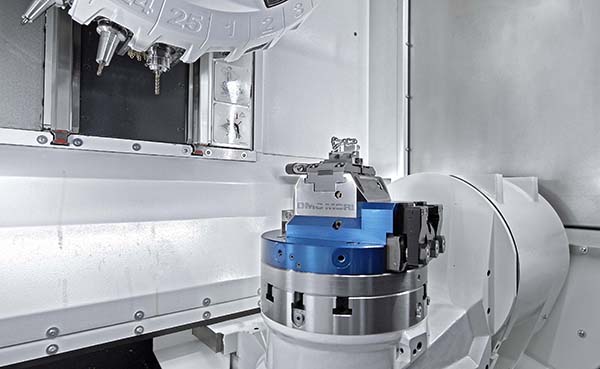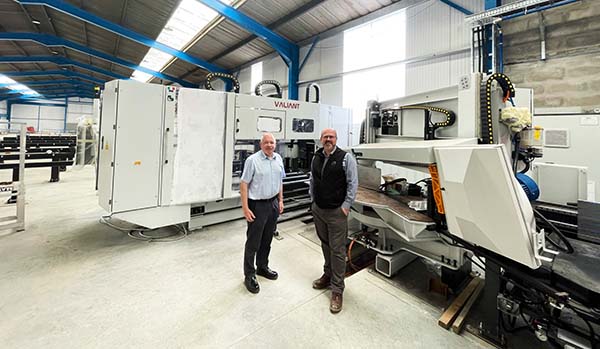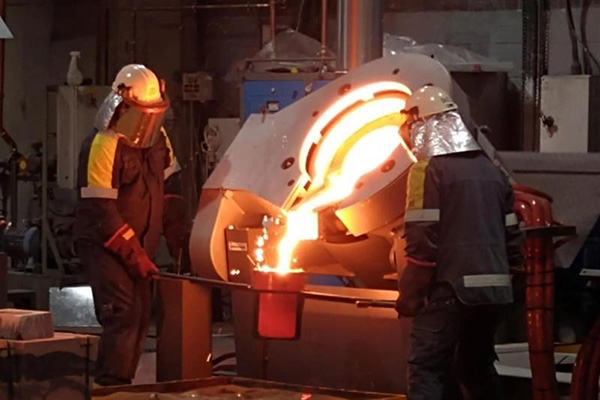
Starrag’s new Heckert H65 compact horizontal machining centre is said to add a new dimension to heavy-duty four-axis machining for a machine of its class. Occupying just 24 sq m, Starrag says the H65 offers machining speeds up to 30% faster than comparable models and can increase output levels by 80%.
With X, Y and Z axes of 850 x 1020 x 1000 mm, and 630 x 500 mm twin pallets each able to accommodate loads of 1.5 tonnes (with a pallet-change time of 13 secs), this latest addition to Heckert’s compact H range of cost-competitive machining centres provides traverse rates up to 80 m/min and a standard spindle speed of up to 10,000 rpm from its 60 kW/450 Nm hollow shaft HSK-A100 spindle.
A motor spindle with a run-up time of just 1 second is suitable for machining light alloy materials such as aluminium. The Heckert H65 can utilise a wide range of tool magazines and tool changers; tools up to 22 kg can be held securely in a chain/in-line magazine, while a tower magazine will accommodate tools up to 50 kg. The chip-to-chip time of the most dynamic machine variant design is 3.1 seconds.
As standard, the internal coolant supply delivers up to 100 l/min at 80 bar through the centre of the spindle and is programmable via M code.
The 24-inch control panel (Fanuc or Siemens CNC) offers multi-touch, intuitive operator guidance via Starrag’s HMI touch screen, and the control is future-proofed with built-in IO-Link technology that allows users to monitor machine status (even individual machine elements) at any time and from anywhere.
For further information
www.starrag.com























